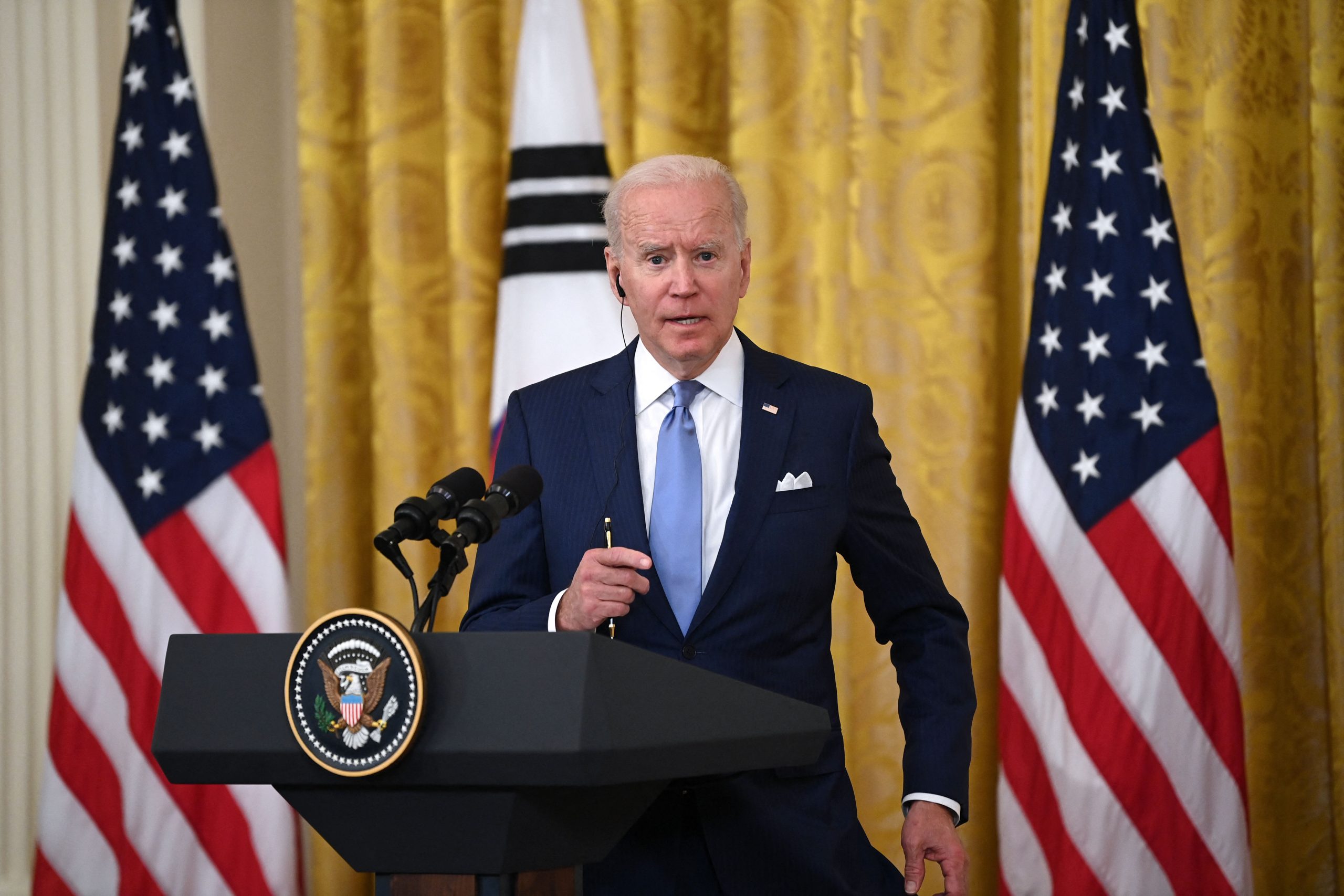President Joe Biden acknowledged on Friday the absence of any easy path to getting North Korea to give up its nuclear weapons but reaffirmed his “iron-clad” commitment to the US alliance with South Korea after talks with President Moon Jae-in.
“We’re under no illusions how difficult this is — none whatsoever. The past four administrations have not achieved the objective. It’s an incredibly difficult objective,” Biden said at the joint press conference with his South Korean counterpart at the White House.
Also read: What is the mandatory military service in South Korea?
He also announced he had named veteran diplomat Sung Kim, the former US ambassador to Seoul, as his special envoy for North Korea.
Facing a nuclear-armed North Korea and an increasingly assertive China, Biden stressed his faith in traditional US alliances.
Biden called the US-South Korean partnership “the linchpin of peace, security” and promised a “shared approach” to the stand-off with North Korea.
He said that during their talks at the White House he and Moon discussed “freedom of navigation” for international shipping in the South China Sea, as well as “peace and stability” around Taiwan, which has been subjected to growing Chinese sabre-rattling.
Moon called denuclearization of the Korean peninsula “the most urgent common task.”
US relations with historic allies in Asia and Europe suffered turbulence under Donald Trump, who recast long-standing partners as cutthroat business competitors and freeloaders. Biden has worked quickly to restore the previous balance, with an eye on the challenge from China.
Moon came to Washington as Biden’s second foreign guest and Japanese Prime Minister Yoshihide Suga, who visited last month, was the first.
“It should send a clear message about the importance of these partnerships and alliances that the first bilateral meetings the president has had … are with Japan and South Korea,” White House Press Secretary Jen Psaki told reporters Friday.
Upon his arrival for the talks with Biden, Moon declared that South Korea and the United States share the “same soul,” forged in their bloody Cold War-era conflict with North Korea at the start of the 1950s.
Symbolizing the deep, complex history behind those bonds, Moon was invited to witness Biden awarding the Medal of Honor — the highest US military decoration for bravery — to a 94-year-old US veteran of the Korean War.
Then first lieutenant Ralph Puckett was wounded in 1950 while leading US and Korean soldiers in the desperate defense of a hill against an overwhelming force of Chinese troops — an early episode in Beijing’s decisive entry into the war.
The White House said this was the first time any foreign leader had taken part in a Medal of Honor ceremony.




